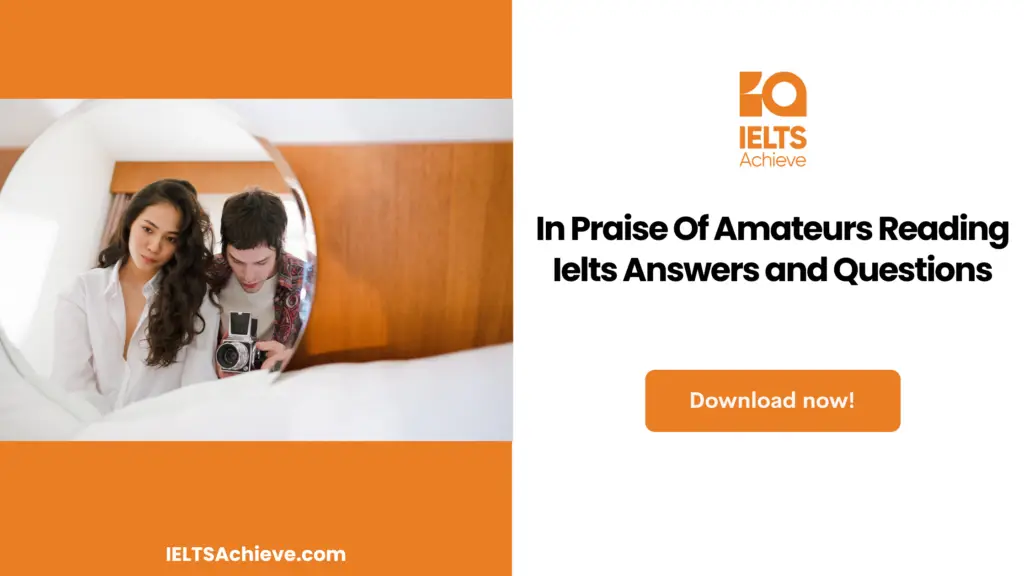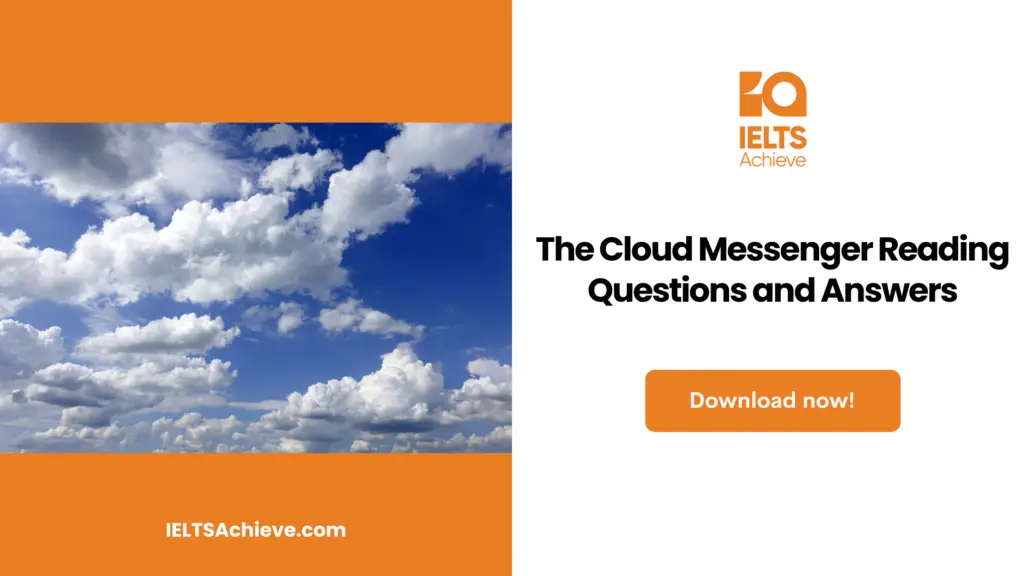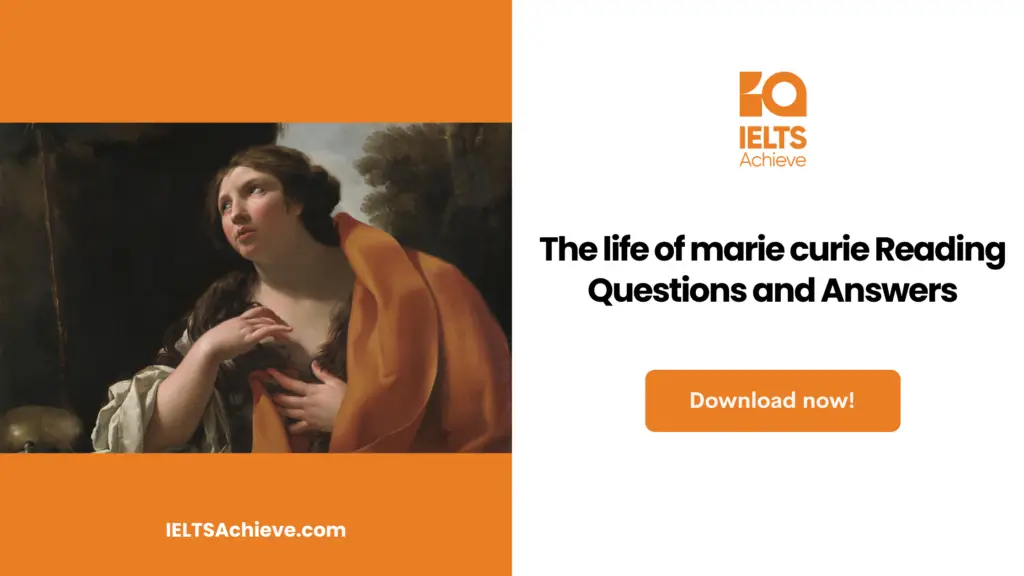The Blog post contains the following IELTS Reading Questions:
- IELTS Reading Note Completion
- IELTS Reading Yes/No/Not Given
- IELTS Reading Locating Information
Stay informed and prepared for success – Explore our comprehensive Reading Test Info page to get valuable insights, exam format details, and expert tips for mastering the IELTS Reading section.
IELTS Reading passage – In Praise Of Amateurs

In Praise Of Amateurs
During the 17th century scientific revolution, scientists were mostly wealthy men who pursued their interest in natural philosophy for their own edification. It has only been possible to make a living studying the workings of nature for the past century or two. To put it another way, modern science was built on the efforts of amateurs. Science is becoming increasingly specialised and compartmentalised, with experts knowing more and more about less and less. Surprisingly, amateurs – even those with limited financial resources – are still important.
A recent poll conducted by astronomer Dr. Richard Fienberg at a meeting of the American Association for the Advancement of Science revealed that, in addition to astronomy, amateurs are also interested in acoustics, horticulture, ornithology, meteorology, hydrology, and palaeontology. Amateur scientists, far from being crackpots, are frequently in contact with professionals, some of whom rely heavily on their cooperation.
Some fields, admittedly, are more accessible to amateurs than others. Anything that necessitates the purchase of expensive equipment is clearly a no-no. And some types of research can be hazardous; according to Dr. Fienberg, the majority of amateur chemists are either locked up or have blown themselves up. However, amateurs can make valuable contributions in fields ranging from rocketry to palaeontology, and the rise of the Internet has made collecting data and disseminating results easier than ever before.
Which field of study has benefited the most from amateur contributions is a matter of contention. Dr. Fienberg makes a compelling case for the study of astronomy. He points out that amateur and professional sky watchers have a long history of working together. Amateurs found many asteroids, comets, and planet Uranus. Observing the brightness of variable stars and detecting novae—’new’ stars in the Milky Way and supernovae in other galaxies—are still important tasks for amateur astronomers today, in addition to comet and asteroid spotting. According to Dr. Fienberg, amateur observers are beneficial because there are so many of them (far outnumbering professionals) and because they are located all over the world. This allows for unique observations: for example, if several observers around the world accurately record the time when a star is eclipsed by an asteroid, useful information about the asteroid’s shape can be derived.
Palaeontology is another field where amateurs have historically played a significant role. Adrian Hunt, a palaeontologist at Mesa Technical College in New Mexico, claims that his field is the one where amateurs have had the most impact. Despite advances in technology, he claims that the best sensors for finding fossils are human eyes – and lots of them.
Because of the near universal interest in anything dinosaur-related, he says, finding volunteers to look for fossils isn’t difficult. Volunteers learn about science while also assisting with the research, which he refers to as recreational education.’
In his field, Rick Bonney of Cornell Laboratory of Ornithology in Ithaca, New York, believes that amateurs have made the most contributions. He points out that there are an estimated 60 million birdwatchers in the United States alone. Mr Bonney has enlisted thousands of amateurs in a number of research projects due to their large numbers and wide geographic coverage. Their observations over the last few years have revealed previously unknown trends and cycles in bird migrations, as well as declines in the breeding populations of several migratory bird species, prompting habitat conservation efforts.
Collaboration between amateurs and professionals, despite its successes and regardless of the field of study, is not without its challenges. The term ‘amateur,’ for example, does not sit well with everyone. Mr Bonney coined the term “citizen scientist” because he thought other terms, such as “volunteer,” were derogatory. The question of how professionals can best acknowledge amateur contributions is a more serious issue. Some amateur astronomers, according to Dr. Fienberg, are happy to provide their observations but complain about not being reimbursed for out-of-pocket expenses. Others are disappointed when their findings are included in scientific papers but they are not listed as co-authors. Some amateur palaeontologists, according to Dr. Hunt, are disappointed when they are told they cannot take their finds home with them.
These are legitimate concerns but none seems insurmountable. There’s no reason why amateurs and professionals can’t work together if they agree on the terms of their collaboration ahead of time. Dr. S. Carlson, the founder of the Society for Amateur Scientists, received a $290,000 award last year for his efforts to promote such collaboration. He claims that one of the prize’s main benefits is the recognition it has given to amateur scientists’ contributions, which has helped silence critics among professionals who believe science should be their exclusive domain.
Dr. Carlson says the society is currently working on a number of projects, including an innovative rocket design project and the establishment of a network of observers to look for evidence of a link between earthquakes and low-frequency radiations. He claims that amateurs contribute enthusiasm and talent, while professionals provide guidance so that whatever they discover is taken seriously.’ Having laid the foundations of science, amateurs will have so much to give to its expanding structure.
Unlock your full potential in the IELTS Reading section – Visit our IELTS Reading Practice Question Answer page now!
Recommended Questions:
Renewable Energy IELTS Reading Question with Answer
In Praise Of Amateurs IELTS Reading questions
Questions 1-5
Complete the notes below.
Write NO MORE THAN TWO WORDS from the passage for each answer.
- During the 17th century scientific revolution, scientists were mostly 1________.
- Some types of research can be hazardous; according to 2________.
- The rise of the 3________ has made collecting data and disseminating results easier than ever before.
- 4________ is another field where amateurs have historically played a significant role.
- Adrian Hunt is a palaeontologist at 5________ Technical College in New Mexico.
Boost your performance in Summary, Notes, Table, and Flowchart Completion tasks. Click here to explore our detailed guide and learn how to effectively complete summaries, notes, tables, and flowcharts in the IELTS Reading section.
Questions 6-9
Do the following statements agree with the information given in the Reading Passage?
Write
- YES if the statement agrees with the claims of the writer
- NO, if the statement contradicts the claims of the writer
- NOT GIVEN if it is impossible to say what the writer thinks about this
6. It has only been possible to make a living studying the workings of nature for the past century or two.
7. Amateurs are not interested in acoustics, horticulture, ornithology, meteorology, hydrology, and palaeontology.
8. Some amateur palaeontologists are disappointed when they are told they cannot take their finds home with them.
9. Dr. S. Carlson is the founder of the Society for Amateur Scientists.
Want to excel in identifying the writer’s views and claims? Click here to explore our in-depth guide on how to accurately determine Yes, No, or Not Given in the IELTS Reading section.
Questions 10-14
This reading passage has ten paragraphs, A–J.
Which paragraph contains the following information?
Write the correct letter, A – J, as your answer to each question.
10. Science is becoming increasingly specialised and compartmentalised.
11. Amateurs are also interested in acoustics, horticulture etc.
12. Amateurs contribute enthusiasm and talent, while professionals provide guidance.
13. Rick Bonney believes that amateurs have made the most contributions in his field.
14. Amateurs can make valuable contributions in fields ranging from rocketry to palaeontology.
Unlock your full potential in the IELTS Reading section – Visit our IELTS Reading Practice Question Answer page now!
Recommended Questions:
Renewable Energy IELTS Reading Question with Answer
In Praise Of Amateurs IELTS Reading Answers
1. wealthy men
2. Dr. Fienberg
3. Internet
4. Palaeontology
5. Mesa
6. Yes
7. No
8. Yes
9. Yes
10. Paragraph A
11. Paragraph B
12. Paragraph J
13. Paragraph G
14. Paragraph C

We hope you found this post useful in helping you to study for the IELTS Test. If you have any questions please let us know in the comments below or on the Facebook page.
The best way to keep up to date with posts like this is to like us on Facebook, then follow us on Instagram and Pinterest. If you need help preparing for the IELTS Test, join the IELTS Achieve Academy and see how we can assist you to achieve your desired band score. We offer an essay correction service, mock exams and online courses.

